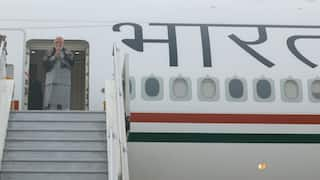Income Tax Rules Change: Now Authorities Can Waive Or Reduce Interest Due On Late Payment Of Taxes
If a taxpayer doesn’t pay the tax amount mentioned in any particular demand notice, they are liable to pay interest at 1 per cent per month for the overall time period of delay in settling the dues

The income tax authorities have made changes in norms related to late payment of taxes by taxpayers. The Income Tax Department has permitted tax officials to waive or cut down the interest payable by a taxpayer, subject to certain conditions.
Typically, under the Income Tax Act Section 220 (2A), if a taxpayer doesn’t pay the tax amount mentioned in any particular demand notice, the individual is liable to pay interest at 1 per cent per month for the overall time period of delay in settling the payment.
The Act now allows Principal Chief Commissioner (PrCCIT) or Chief Commissioner (CCIT) or Principal Commissioner (PrCIT) or Commissioner rank officers to cut down or waive off the amount to be paid as interest for the dues, reported PTI.
Monetary Limit For Waiver/Reduction
Through an official circular dated November 4, the Central Board of Direct Taxes (CBDT) also notified the monetary limit for the interest that can be reduced or waived off by the tax officers.
Further, the PrCCIT rank officer can also decide on letting go or cutting down the interest due of more than Rs 1.5 crore. For interest due above Rs 50 lakh to Rs 1.5 crore, the CCIT rank officer can decide on the waiver/reduction, while for interest due up to Rs 50 lakh, the decision making power lies with the PrCIT or Income Tax Commissioner.
Also Read : Surge In Retail Loan Defaults Pose A Risk To Indian Economy
Criteria Behind The Decision
The authority noted that the decision to reduce or waive the interest payable under Section 220(2A) would remain subject to satisfaction of three specific conditions, namely, the payment of such amount caused or would cause genuine difficulty to the assessee, the default in interest payment was a result of circumstances beyond the control of the taxpayer, and the assessee cooperated in inquiry related to the assessment or proceeding of the recovery of any amount due from them.






































